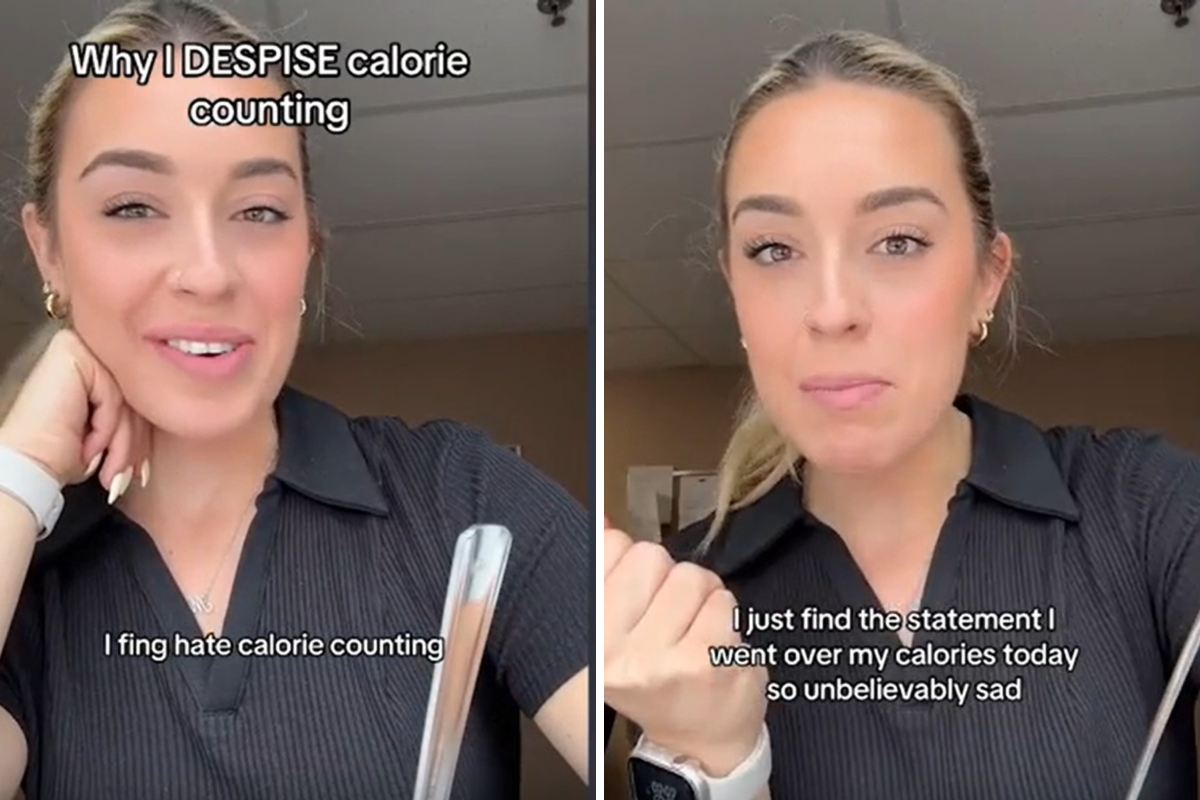We are often told to watch what we eat, but Maddi Cerasuolo disagrees and takes this advice literally. In a TikTok video, she explained why she “hated” counting calories, a popular method of weight loss.
The 24-year-old, who shares fitness-related content under the username @madswellness, tracked her food intake for seven years before noticing the negative effects.
“It initially gave me a sense of control, but over time it became too much and led to unhealthy habits,” she says. Newsweek. “I became hyper-focused on numbers instead of listening to my body, which ultimately made my relationship with food more complicated and stressful.”

TikTok/@madswellness/Maddi Cerasuolo
People often count calories as a method to lose weight, which involves calculating their energy needs based on factors such as height, weight and activity level and then determining their daily calorie intake to fit their needs.
During the video, Cerasuolo, who lives in Toronto, said he couldn’t imagine his weight and was tracking his food and passionately explained why he was humbled. One of the main reasons is feeling “wrong” when he consumes more calories than planned.
She told Newsweek: “Counting calories may be a tool for some, but I believe it is important for people to focus on a sustainable, balanced approach to health.”
He continued: “I think it is a short-term solution and method and can only be effective for a certain period of time before it starts to affect you negatively or even just cause you to hit a plateau. without obsession and a bad relationship with food, more than a long-term goal which many people should strive for.”
Now, he eats intuitively, which means he eats only when he’s hungry and stops when he’s full. No food is off-limits, and he rejects negative feelings after a treat.
While counting calories has been shown to help with weight loss, there is a dark side. In 2021, a group of researchers from the School of Psychology at Australia’s Deakin University conducted a study that explored the increased use of calorie tracking apps and their potential relationship to eating disorder symptoms.
Data from 1,357 adults showed that 71 percent had used a calorie tracking app and 39 percent were current users. Participants who used the app for weight control or body shape reasons were more likely to report symptoms such as food obsession, anxiety and purging, compared to those who used the app for health or disease prevention.
What do the experts say?
Newsweek discussed Cerasuolo’s video, which has received more than 37,000 views, with Francesca Lyon, lead nutritionist at Future Woman, a company that creates personalized health plans based on hormone testing.
Lyon, who lives in Amsterdam, said: “This can help with short-term weight loss. It is not effective for long-term results or overall hormonal and mental health. Why? Because weight loss is not just about calories in versus calories out. It is much more complex, involving your metabolism, hormone levels, inflammation, thyroid function and nutritional balance”.
She said that women who rely on this method often regain the weight they have lost – sometimes even more.
“This is due to the reduced metabolic rate and muscle mass that occurs with calorie restriction, leading to the classic yo-yo dieting pattern,” said Lyon. Newsweek. “Women are especially prone to entering a low-energy state when they limit calories. Their bodies adapt to low food intake by slowing down metabolism and reducing their ability to conserve energy, making it even harder to lose weight in the long term.”
Instead, he recommends counting nutrients instead of calories. “A diet rich in essential nutrients supports energy, sleep, metabolism, weight and hormone health, helping you achieve your optimal weight naturally.”
Lyon shares the following advantages and disadvantages of tracking food.
Advantages of counting calories
- Help you know more about portion sizes.
- It can be effective for short-term weight loss, especially if quick results are needed for health reasons.
Against counting calories
- Not prioritizing nutritional value, causing nutritional deficiencies and hormone imbalances.
- It often leads to undereating, which can cause health problems such as missed periods, low hormone levels and fertility problems.
- It can lead to an unhealthy obsession with food, affecting mental health.
Are there health issues that worry you? Let us know via health@newsweek.com. We can ask for expert advice, and your story can be featured Newsweek.
#Fitness #enthusiasts #rant #calorie #counting #supported #experts